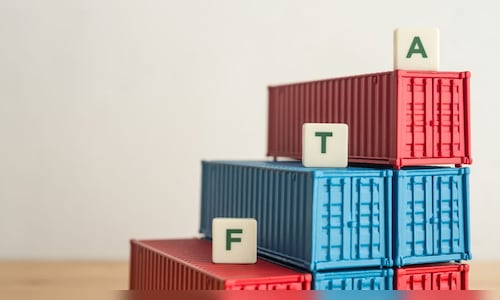Reynolds acknowledged that a former British Prime Minister Rishi Sunak had promised an FTA by Diwali but did not specify the year. However, he maintained that talks had “exceeded expectations” and praised India’s negotiating team.
“There is a personal warmth to the negotiations. There’s progress that has been made, and there is a desire on both sides to get this done,” Reynolds said. “I know the joke has always been that a former British Prime Minister promised an agreement by Diwali one year but didn’t say which year. But I can only tell you this has exceeded our expectations. I am extremely grateful to the whole of the Indian team, not just my great friend, Minister Goyal, but the negotiating team—a very high-quality operation here in India.”
On whether a timeline for the FTA could be set, Reynolds said the priority was securing a long-term, beneficial agreement. “It is always about the quality rather than the speed. We are talking about something which could be a beneficial improvement in trading terms, and it’s for decades, it’s for a long period of time. So, let’s get it right,” he said.
When asked how the Labour government’s approach to the FTA differed from that of the previous Conservative administration, Reynolds pointed to increased political stability and a more outward-looking trade policy.
“In trade talks and trade relationships, personal relationships count a lot more than people might understand. When we were in opposition, we met Minister Goyal and told him that if the Conservative government could finalise the deal, we would implement it. Unfortunately, they couldn’t get it done, so we promised we would resume it,” he said.
Reynolds highlighted Labour’s decisive election victory as a key factor in improving the UK’s negotiating position. “We had a few too many prime ministers in a short space of time before the election. Now, we have a government that is much more open to the rest of the world,” he said.
He also reiterated the UK’s intention to rebuild ties with the European Union, engage pragmatically with China, and advance trade talks with the US and the Gulf Cooperation Council. However, he described the India-UK FTA as particularly significant due to the complementary nature of the two economies.
“There are always difficult issues in a trade negotiation. But the natural complementary nature of our two economies is really exciting. So, I think we’re in a better position to get this done,” Reynolds said.
ALSO READ: Russia has the rare earth metals US needs, open to talks: Kremlin


